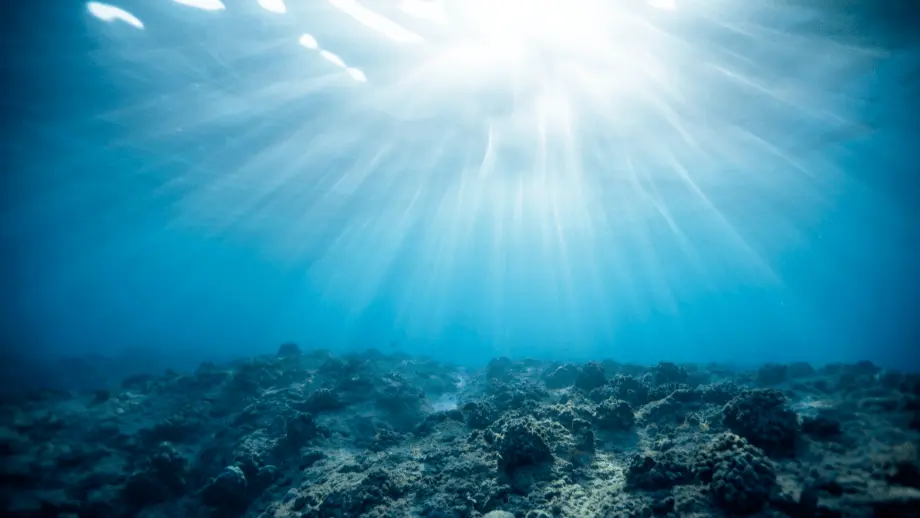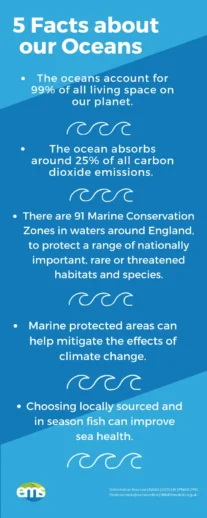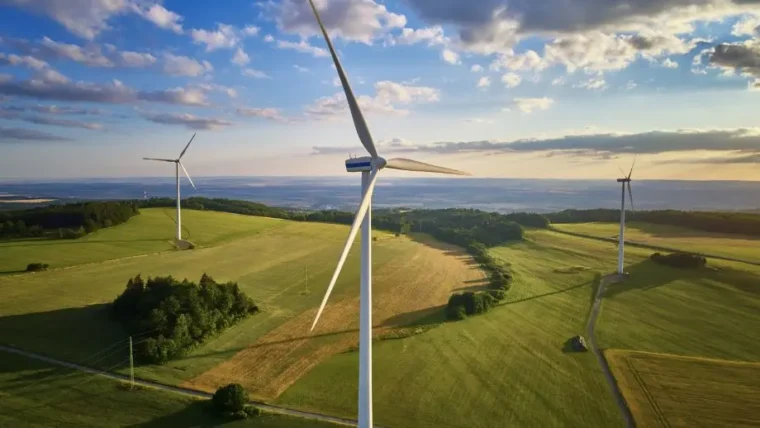
The 24th of July to the 8th of August is “National Marine Week” and aims to encourage us to celebrate our seaside wildlife. In celebration of our marine life, local events are taking place along the UK’s coast such as rock-pooling, snorkelling and even dolphin surveys, detailed on The Wildlife Trusts’ website.
However, numerous man-made issues are currently affecting our marine life. Making smart decisions regarding your choice of seafood, limiting your single-use plastic consumption, and limiting your carbon footprint can all help to protect our oceans.

Our oceans provide us with livelihoods, recreation, and allow us to reap the benefits of huge marine biodiversity. However, today our oceans are facing changes that could alter its ecosystems and natural processes. For example, when marine organisms ingest discarded plastic products that have entered the ocean (potentially through CSOs) this can often lead to reduced growth, reduced reproduction and even starvation in some species, as mentioned in our previous blogs. The accumulation of microplastics in our waterways, and its subsequent entry into the ocean and our foodchains, has been a cause for concern as recent studies have suggested that microplastic ingestion can alter the behaviour of certain species, making them more susceptible to predation.
Additionally, the acidification of our oceans poses certain risks to biodiversity. Ocean acidification is the ongoing decrease in the pH value of the Earth’s oceans, shifting towards pH-neutral conditions, caused by the uptake of carbon dioxide from the atmosphere. The burning of fossil fuels is the predominant cause of ocean acidification. (NHM) This process has been known to decrease production of the shells of shellfish and other aquatic life with calcium carbonate shells. As death rates rise within these species this will again have a wider effect on the food-web. (pmel.noaa.gov)
Finally, over-fishing in UK waters poses a danger to biodiversity as it also has cascading effects on food-webs. In January 2021 the UK Fisheries audit released by Oceana claimed that 6 of the 10 most economically important fish stock are overfished or at a critical biomass level. (Europe.oceana.org) We can help mitigate this by choosing in-season, sustainably fished or locally sourced sea-food for our plates.
Will you be taking part in any local events to celebrate National Marine Week?









